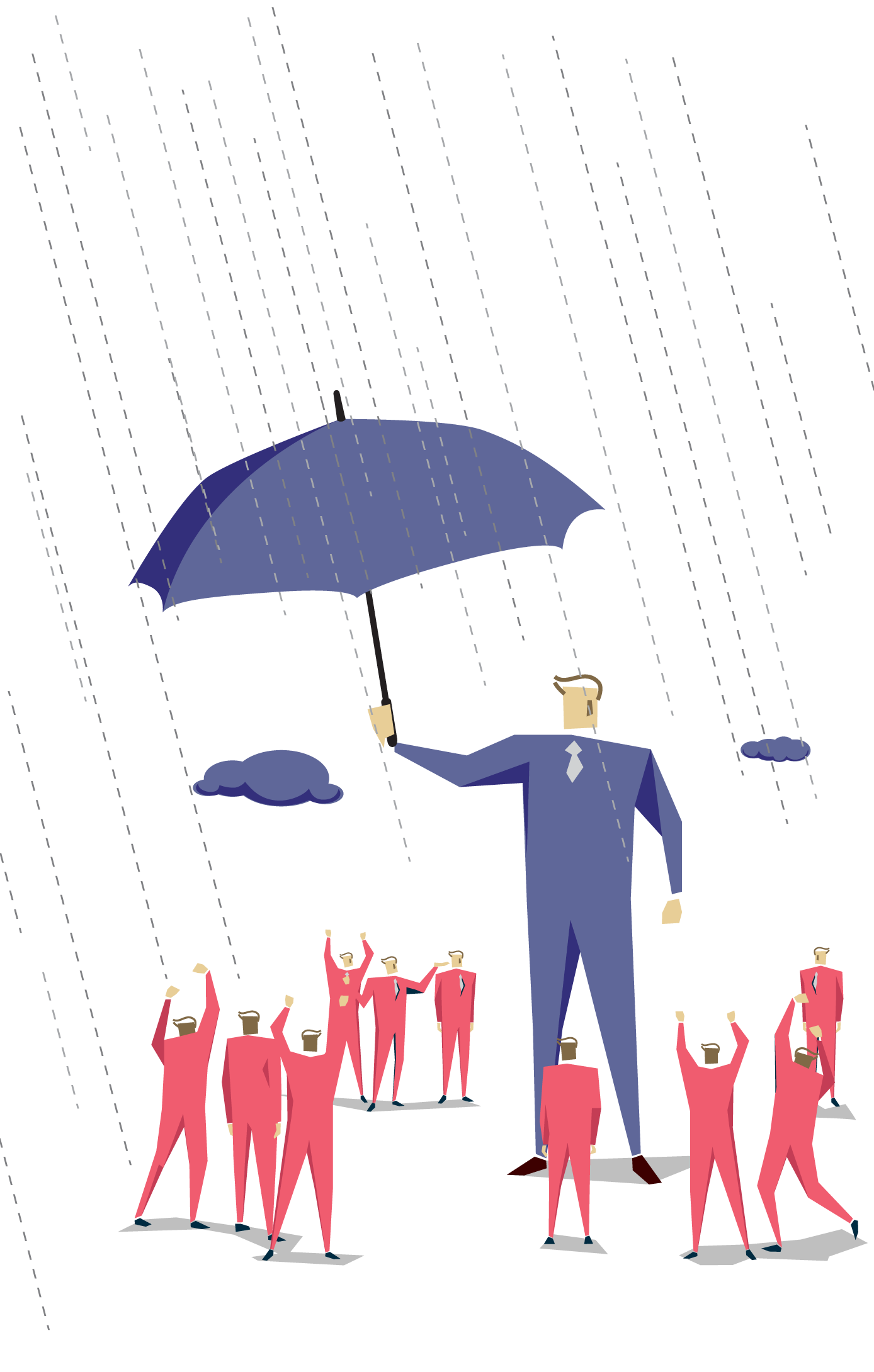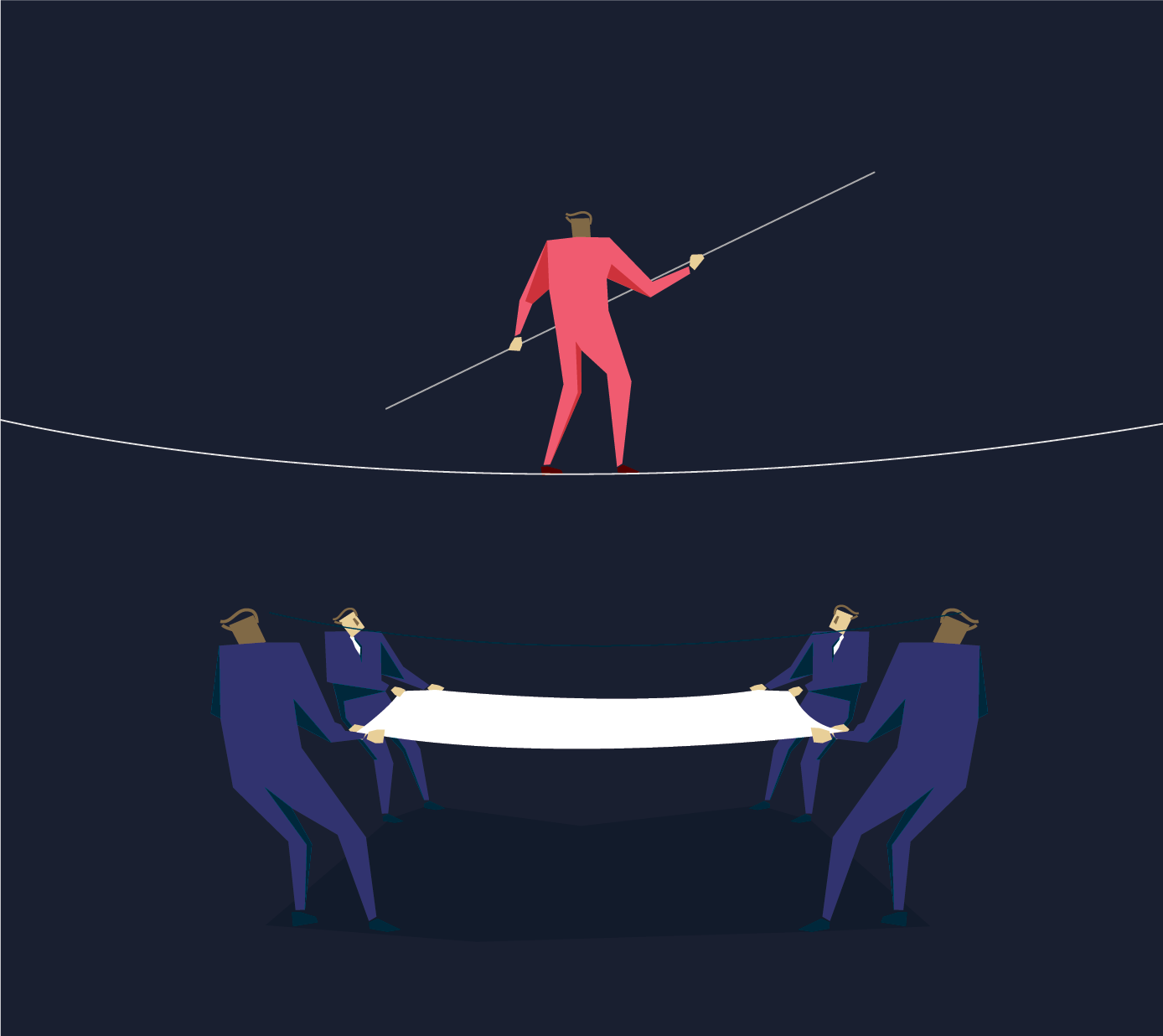The Basics
Small business insurance (referred to as Commercial General Liability insurance or CGL) is the fundamental insurance that your business should consider. However, businesses of any size should consider Commercial General Liability insurance, especially if you work with the public.
Small business insurance protects businesses from financial losses due to third-party claims for:
(a) Bodily Injury
- Injuries to customers, suppliers or visitors that happen at your office
- Injuries that happen off-site by your employees (e.g., while visiting a customer)
(b) Property Damage
- Damage to someone else’s property caused by an employee in the course of doing business
(c) Advertising injury lawsuits
- An injury caused by libel or slander (i.e., reputational “injury”)
Many entrepreneurs have small business liability insurance as it is typically required to get a loan or an office space (see here for common triggers for buying insurance). Given how complex the typical policy can seem, it is a daunting task to try and understand exactly what is covered. Some policies can be 65 pages long, and full of strenuous jargon which is difficult to understand, deterring you from truly understanding the coverage applied to your small commercial business.
Keep in mind that there are several types of insurance that a small business should have. Regardless of the type of business you own, several policies may be required in addition to commercial general liability insurance. As an example, if business operations are stalled due to an unexpected hold on a project, commercial general liability insurance does not cover the cost of lost income. In such a case, business interruption insurance is necessary.
If you are looking to get a small business commercial insurance policy, be sure to check whether the following are included, as they are sometimes excluded:
- Cyber liability insurance
- Commercial property insurance
- Non-owned auto insurance
The cost of a small business insurance policy depends on a few key factors, such as the industry, level of experience in the industry, revenue, number of employees and location. The best way to find the optimal policy at a competitive rate is to shop around.

Tips for Small Businesses on Applying for Commercial Insurance
Although owning a commercial general liability policy is a standard insurance product, insurance coverage requirements for small businesses will naturally vary by policy. Why? The insurance protection needs of each small business policyholder will be unique to each business. Therefore, it’s important to know how to shop for the right policy and to know what information to prepare before you begin your venture.
Here are the four most important things to remember when buying commercial vehicle insurance:
1. Understand Your Business Risk Exposures
The primary purpose of purchasing small business insurance is to protect your business against financial losses arising from third-party claims for bodily injury or property damage. Although a good insurance agent or broker can help identify and cover your greatest risk exposures, knowing the risks unique to your business before the application process is necessary to get the right coverage for you.
2. Never Underinsure Your Business
You don’t want to be underinsured, nor do you want to buy unnecessary coverage. However, if the standard CGL policy is not sufficient to cover your business risk exposures, don’t hesitate to add endorsements or standalone policies, where necessary. Also, higher deductibles and lower limits may reduce premiums but could be costly when there is a claim.
3. Speak To An Expert – Find A Broker Who Knows Your Business
Small business insurance is not industry-specific coverage. Therefore, each policy will not look the same. When shopping for small business insurance, be sure to engage an agent or broker who truly understands the specific needs of your business. They can help guide you to buy the right coverage types with the ideal limits for your particular risk exposures. They can also walk you through preparing all of the information you need to have your policy approved. It can be overwhelming but doesn’t have to be. If you’d like help with finding the right protection for your small business, call us at +1-866-390-5857 or easily get a quote online on our website.
Bodily Injury
Slip and fall cases are common examples of commercial general liability bodily injury claims. Say an employee is mopping in your store and forgets to put up a warning sign. If a customer slips, falls and sustains injuries, they can sue your business for damages, including medical payments. Mental injuries and emotional distress can also be considered injuries.
Property Damage
Property damage covers cost of damages to someone else’s property due to an accident for which you are found at fault. Let’s say you run a residential cleaning service. One of your employees is cleaning a wealthy customer’s home and accidentally breaks an expensive vase. CGL insurance would cover the cost of damages up to your policy limit.
Personal and Advertising Injury
In an advertising campaign for your auto repair business, you compare yourself to a competitor. You state that your competitor has dishonest pricing. Your competitor finds this claim unfounded and sues you for defamation. A commercial general liability policy would cover your defense, up to your personal damages advertising coverage limit.
What Commercial General Liability Insurance Does Not Cover
The primary coverage types included in a standard commercial general liability (CGL) policy will protect against the most common risk exposures that the majority of small businesses face. However, there are some risk exposures and respective coverage types that are excluded from a CGL but may still be needed by the business.
Other missing coverage gaps will vary depending on your policy. You may be able to get coverage for an additional premium, or find it from a different carrier. However, the right coverage at the best pricing is almost always accomplished by bundling coverage types into one package.

Who Needs Commercial General Liability Insurance
If your business works with customers, contractors, clients, or vendors, it’s likely you’ll need commercial general liability (CGL) coverage. In addition to protecting against financial losses from third-party liability claims, many small business owners often need a certificate of liability insurance, proving they have CGL coverage for licensing requirements or for entering into contracts.
Here are a few examples of cases where business owners need general liability insurance:
- While visiting your business, a customer slips on a wet floor in your bathroom and sues you for bodily injury.
- An employee in your business damages the property of a client while working at the client’s home on a job.
- A fire starts in a space you lease and does damage to the entire building, damaging property of other businesses.
It’s also important to note that business owners working out of their own homes may need commercial liability coverage in addition to their homeowner’s policy. This is because homeowners insurance policies normally exclude business-related claims. And if a homeowners policy covers the business owner, the limit may be insufficient to cover the claim.
Get Started with Small Business Insurance
Looking for help? Get in touch with us

GET BUSINESS INSURANCE FROM:





